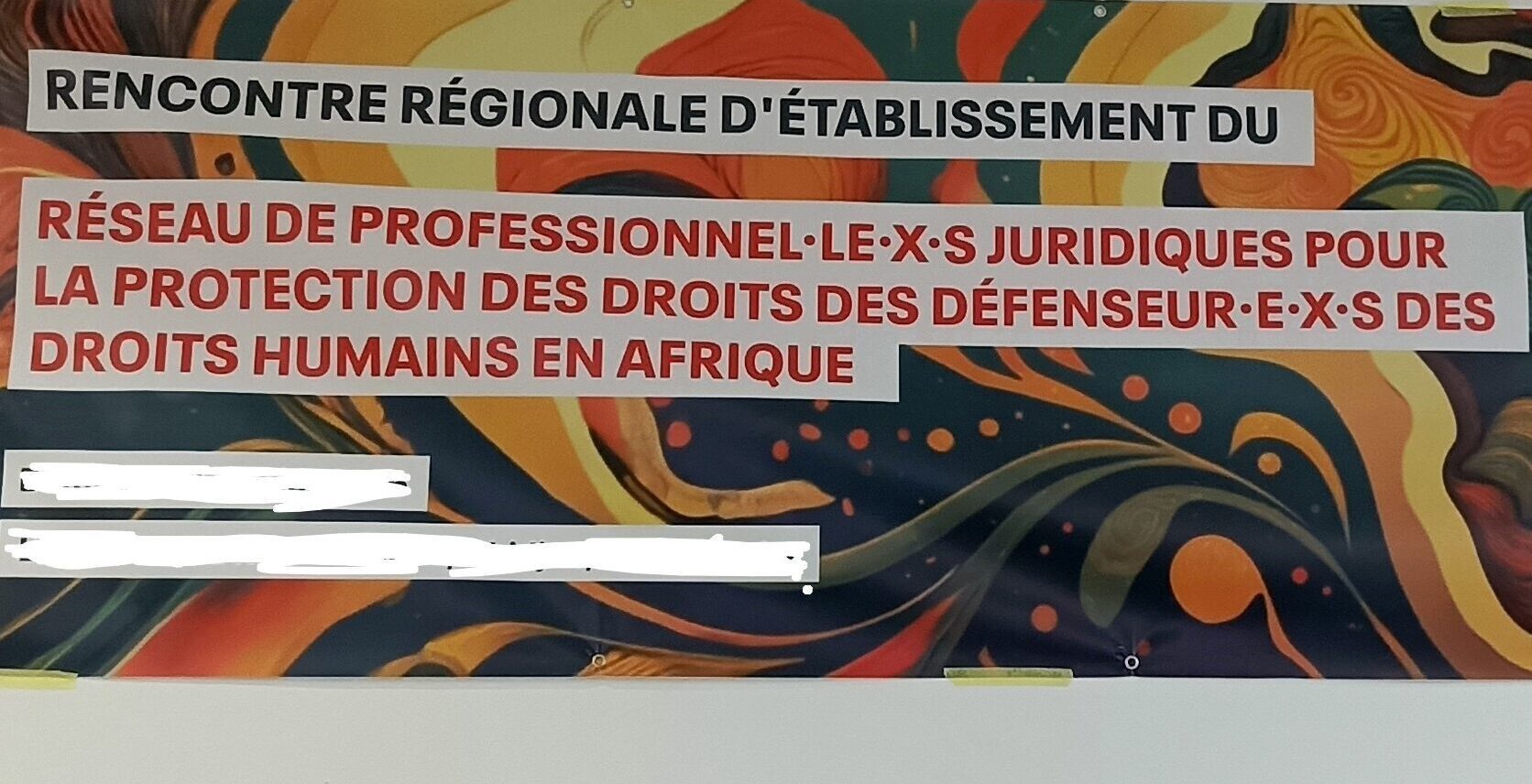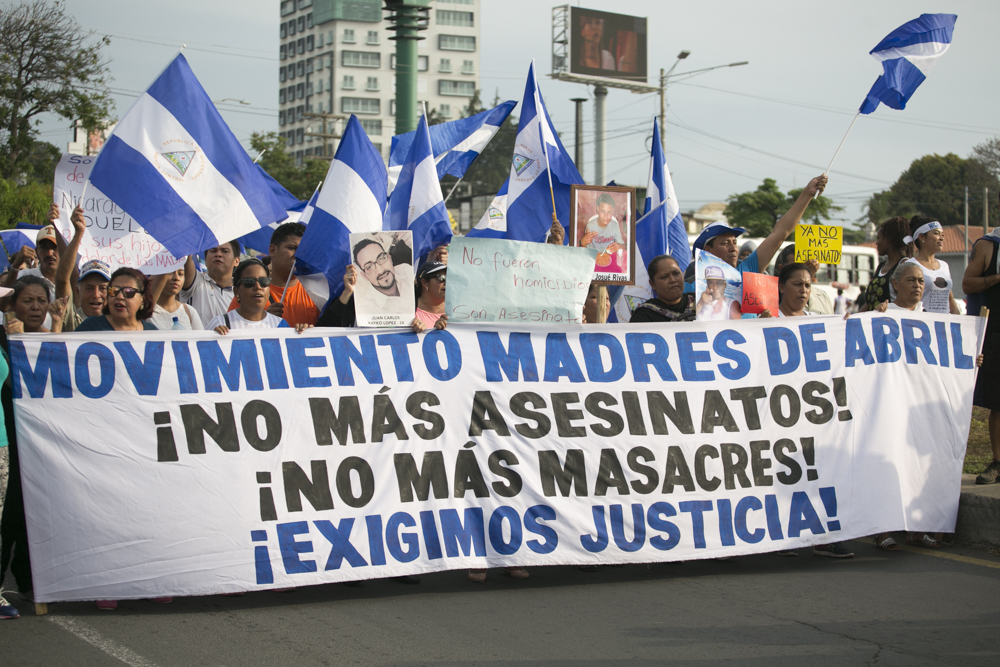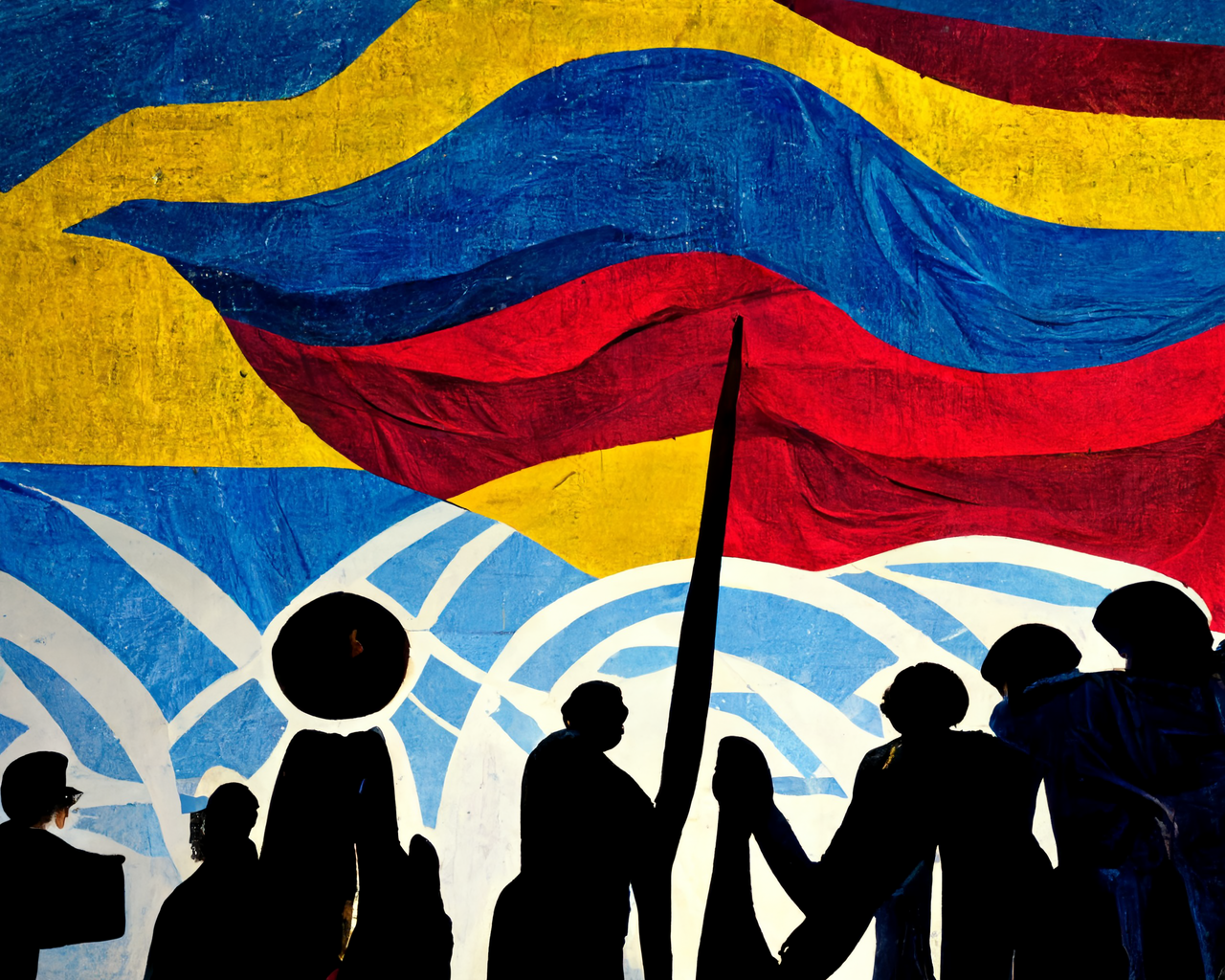
Launch of the Network of Defenders rights' protection in Africa
ISHR, in collaboration with its various partners, has established a network of legal professionals for the protection of human rights defenders in Africa
© Jorge Mejía Peralta / FlickR

During a Human Rights Council debate with High Commissioner Volker Türk on the human rights impact of recent municipal elections in Nicaragua, the International Service for Human Rights (ISHR) and 33 organisations, including from the Colectivo 46/2 coalition, launched a global call for the two-years renewal of the Council’s resolution on Nicaragua.
On 15 December, the Human Rights Council – the UN’s top human rights decision-making body – held a debate on the human rights situation in Nicaragua in the aftermath of the November 6 municipal elections, as mandated by the Council’s resolution 49/3. Addressing the Council, new High Commissioner Volker Türk denounced an intensified ‘climate of oppression’, including:
I would like to express my solidarity with the victims and their families, and with all human rights defenders in Nicaragua and in exile. My Office will continue to support efforts for accountability and for the promotion and protection of human rights.Volker Türk, UN High Commissioner for Human Rights
High Commissioner Türk urged Nicaragua to ‘immediately release all those arbitrarily detained’, a call reiterated by Argentina, Spain, France, Germany, Belgium, the Netherlands, Luxemburg, the United Kingdom, the United States, Ukraine, and the European Union. While Argentina raised strong concerns at abuses in Nicaragua, Mexico’s voice was noticeably absent from the dialogue.
Speaking on behalf of Canada, Colombia, Chile, Paraguay, Ecuador and Peru, the Costa Rican Ambassador joined the call for the release of all political prisoners, and underscored that the municipal elections were ‘neither fair nor free’: they were marked by arrests and the absence of electoral reforms, ‘similar to the 2021 general elections.’ The seven countries – with the regrettable absence of Brazil, the remaining member of the group of States leading the Council’s resolution on Nicaragua –, urged Nicaragua to attend its upcoming review by the UN’s women rights committee (CEDAW) in February.
Germany reiterated deep concern about impunity for repeated attacks against indigenous peoples, recalling that ‘forcing indigenous peoples from their ancestral homes also means restricting their access to education, food, medicine and other vital resources.’ Peru, France and Switzerland echoed concerns over the situation of indigenous and afro-descendants in the country.
The ‘Benelux’ countries (Belgium, Netherlands and Luxemburg) emphasised that ‘femicides and sexual violence continue to increase as a result of the dismantling of the institutions that guarantee women’s rights.’
Unsurprisingly, the Nicaraguan government declared its ‘absolute rejection’ of what it perceives as ‘interventionist’ reporting by the High Commissioner. Its position was expectedly endorsed by Syria, China, North Korea, Iran, Belarus, Sri Lanka, Russia, and Venezuela – countries under the Council’s scrutiny for grave rights abuses.
Nicaraguan activist Juan Carlos Arce from the Colectivo de Derechos Humanos Nicaragua Nunca Más spoke on behalf of 34 human rights organisations to urge the Human Rights Council to renew its resolution on Nicaragua in its upcoming March 2023 session, when it is due for consideration. The joint statement was endorsed by the Colectivo 46/2, a coalition of Nicaraguan and international rights groups monitoring Nicaragua’s human rights crisis at the UN level.
The full version of the joint statement is available in English and Spanish. It was orally delivered as follows:
We lack appropriate terms to describe the suffering that the Nicaraguan people have endured since the repression of the April 2018 protests, and the severity and breadth of the human rights crisis at the hands of the government in Nicaragua.Juan Carlos Arce Campos, lawyer at the Colectivo de Derechos Humanos Nicaragua Nunca Más
Soon after the end of the Council’s debate, the Colectivo 46/2 held a press conference to launch its global call for a two-years renewal of resolution 49/3 adopted by the Human Rights Council on 31 March 2022. The resolution, led by Brazil, Canada, Chile, Colombia, Costa Rica, Ecuador, Paraguay and Peru, strengthened the monitoring mandate of the Office of the High Commissioner for Human Rights (OHCHR), and created a Group of Human Rights Experts tasked with conducting ‘thorough and independent investigations into all alleged human rights violations’ since April 2018 in the country.
The three experts are mandated to look into the root causes of abuses, while adopting a victim-centred approach and ‘addressing the impact of multiple and intersectional forms of discrimination.’ They must also collect and preserve evidence, and identify perpetrators, with a view to ‘ongoing and future accountability efforts.’
Such a robust, far-reaching mandate requires years-long efforts to document and address the root causes of Nicaragua’s human rights crisis. A two-years renewal of the resolution is a necessary step to support that effort.Raphael Viana David, China and Latin America Advocate at ISHR
The resolution was endorsed by 20 Council Members, including key regional actors such as Mexico and Argentina, African Members Malawi and the Gambia, and Asia-Pacific Members South Korea, Japan, and the Marshall Islands. While 20 Council Members abstained, only seven Members opposed the motion, including Honduras, who later shifted to an ‘abstention’ to no effect.
Nicaragua’s long-term human rights crisis shows no signs of improvement. The Nicaraguan government has not given any indication over the past years of a willingness to reengage with the international community, nor to take initial steps to acknowledge the crisis and revert course. The government notably shut its door to six UN human rights committees over the past year, prompting an unprecedented response by the UN’s two anti-torture bodies.
At the occasion of the Council’s meeting on December 15, the Colectivo 46/2 published its assessment of Nicaragua’s implementation of resolution 49/3. On the basis of information from the UN and Inter-American systems, the assessment concludes that Nicaragua has not taken any initial steps to implement any of the resolution’s 14 recommendations – in line with past assessments of resolution 46/2.
During the dialogue, High Commissioner Türk, as well as Chile, France and Spain deplored Nicaragua’s entrenched isolationism, imposed onto its population by President Ortega and Vice-President Murillo. Peru, Ecuador, Argentina and four other countries urged the government to resume cooperation with international human rights bodies.
In this context, ISHR and the Colectivo 46/2 call on:

ISHR, in collaboration with its various partners, has established a network of legal professionals for the protection of human rights defenders in Africa

Venezuela is at a complex political juncture. In this context, sixteen national and international civil society organisations have put forward a ten-point list of priority demands.

Fifty organisations urge the UN Human Rights Council to urgently convene a special session to address an unprecedented escalation in mass unlawful killings of protesters in Iran.